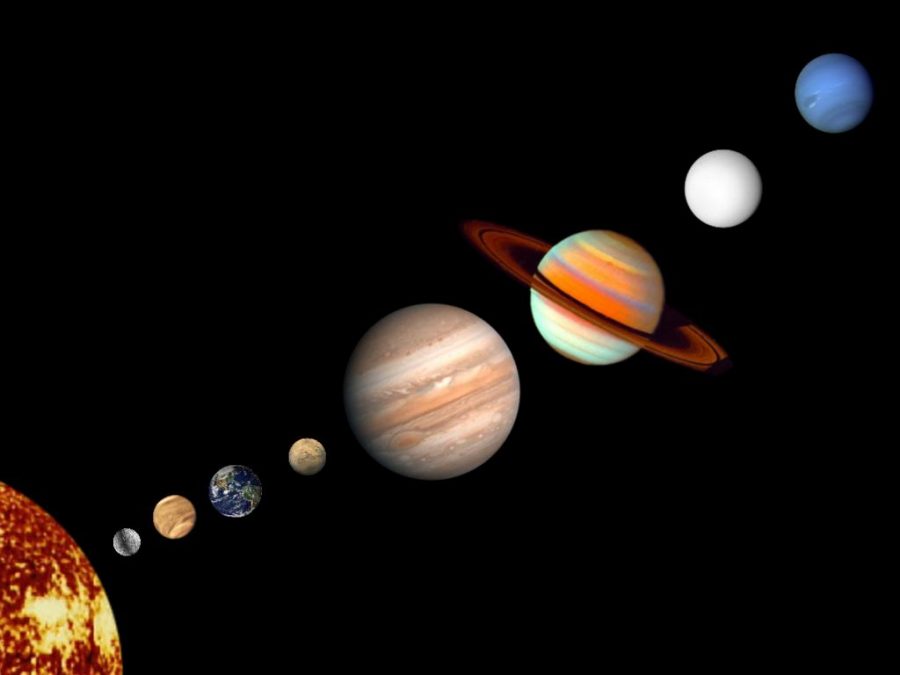The Fermi Paradox
Are we the only living things in the entire universe? The observable universe is about 90 billion light-years in diameter. There are at least one hundred billion galaxies, each with one hundred to one thousand billion stars. Recently, we’ve learned that planets are very common too. And, there are probably trillions and trillions of habitable planets in the universe. Which means, there should be lots of opportunities for life to develop and exist.
But where is it? Shouldn’t the universe be teaming with spaceships? Or shouldn’t there be any detectable signals in space? Or at least any sign that there is life other than us out there? Let’s take a step back. Even if there are alien civilizations in other galaxies, there’s no way we’ll ever know about them. Basically, everything outside our direct galactic neighborhood, the so-called “Local Group,” is pretty much out of our reach forever, because of the expansion of the universe. Even if we had really fast spaceships, it would literally take billions of years to reach these places, traveling through the emptiest areas in the universe. So, let’s focus on the Milky Way. The Milky Way is our home galaxy. It consists of up the four hundred billion stars. That’s a lot of stars, roughly ten thousand for every grain of sand on earth. There are about twenty billion sun-like stars in the Milky Way, and estimates suggest that a fifth of them, have an earth sized planet in its habitable zone, the area with conditions that enable life to exist. If only zero point one percent of those planet harbor life, there would be one million planets with life in the Milky Way. But wait, there’s more. The Milky Way is about thirteen billion years old. In the beginning, it would not have been a good place for life, because things exploded a lot. After one to two billion years, the first habitable planet was born. Earth is only four billions years old, so there have probably been trillions of chances for life to develop on other planets in the past. If only a single one of them had developed into a space traveling super-civilization, we would have noticed by now.
Even if there is an intelligent civilization, what would such a civilization look like? (I wish they look like Pokemon!) There are three categories. A type one civilization would be able to access all the energy available on its planet. In case you are wondering, we are currently around 0.7 on the scale, and we should reach type one sometime in the next couple hundred years. Type two would be a civilization capable of harnessing all of the energy of its home star. This would require some serious science fiction, but it is doable in principle. Concepts like the Dyson Sphere, a giant complex surrounding the sun that captures all the energy from the star, would be conceivable. Type three is a civilization that basically controls its whole galaxy, and its energy. An alien race this advanced would probably be god-like to us. But why should we be able to see such an alien civilization in the first place? If we were to build generation spaceships, that could sustain a population for around one-thousand years, we could colonize the whole galaxy in two million years. Sounds like a long time, but remember, the milky way is huge.
If it takes a couple of million years to colonize the entire galaxy, and there are possibly millions or billions of planets that could sustain life in a milky way, and these other life forms have had considerably more time than we’ve had, then, where are all the aliens? This is the Fermi Paradox, and nobody has an answer to it. However, we do have some ideas.
Let’s talk about filters. A filter in this context represents a barrier that is really hard for life to overcome. Some people also consider Evolution a great filter. They come in various degrees of scary. One: There are Great Filters and we’ve passed them. The process, allowing life to begin, hasn’t yet been completely figured out, and the conditions required may be really complicated. Maybe in the past, the Universe was way more hostile, and only recently things have cooled down to make complex life possible. This would also mean that we may be unique, or at least one of the first, if not the first civilization in the entire Universe. Two: There are Great Filters and they are ahead of us. This one would be really really bad. Maybe life on our level exists everywhere in the universe, but it gets destroyed when it reaches a certain point, a point that lies ahead of us. For example, the awesome future technology exists, but when activated, it destroys the planet (I can give several movie references). The last words of every advanced civilization would be: “This new device will solve all of our problems, once I push this button!” Sounds familiar? If this is true, then we are closer to the end then the beginning of human existence. Or, maybe there is an ancient type three civilization, that monitors the universe, and once a civilization is advanced enough, it gets eliminated, in an instant (that would be epic). If we let life on this planet die, perhaps there would be no life left in the universe. Life would be gone, maybe forever. This is one more reason for us to lead a sustainable life, and try to save the planet instead of killing it.











